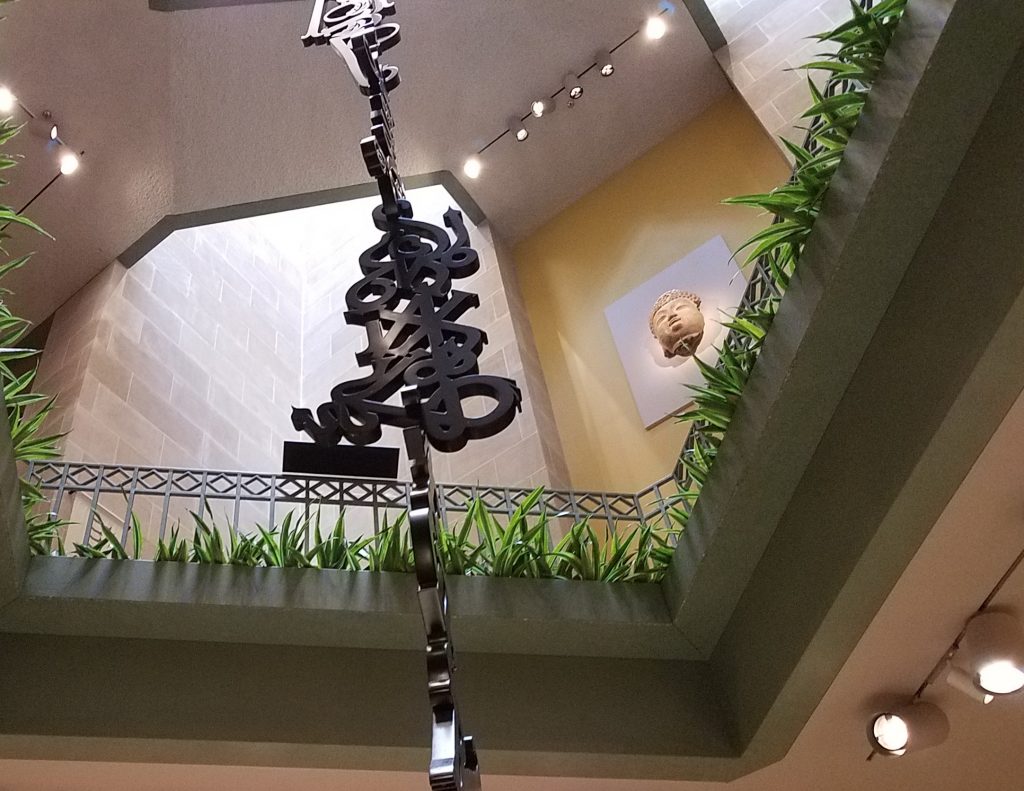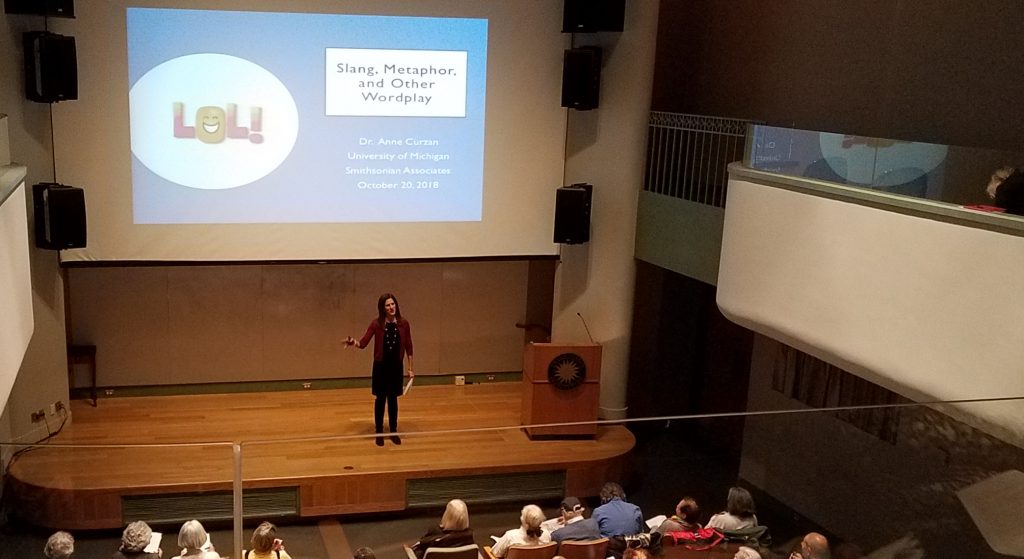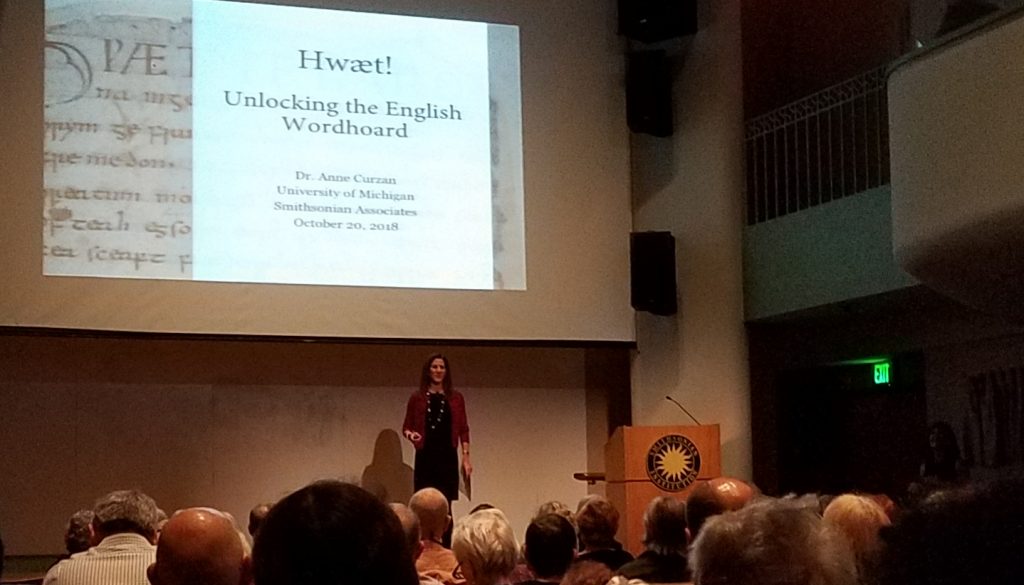
Chrissy & I went down to Smithsonian to unlock the wordhoard in a day-long program by Professor Anne Curzan, a linguist from University of Michigan. The real title was English Words: Etymologies and Curiosities. I just liked “wordhoard”. It is the old English for vocabulary. “He dipped into his wordhoard and said …” Another interesting phrase was “ban hus” or bone house. That means body. Professor Curzon read from old English. It is clearly a foreign language, but if you listen very hard you can perceive it is your language down deep.
There never was a pure English (or any other language) but English has a birth year – AD 449. That is the tradition date when the Anglo-Saxons crossed over to what would become England. Of course, they brought with them their Germanic language and it did change immediately when they crossed the water, but the separation began.
The Romans abandoned the province of Britannia. They just could not hang on, as barbarians streamed across the imperial borders and when in 410 the Visigoths sacked Rome, the emperor decided to cut Britannia loose. The Britons were not very warlike after nearly 400 years of Roman protection. W/o the Roman legions they could not defend their borders against barbarians and pirates who raided the coasts. So, they made the unwise choice of inviting German mercenaries to do their fighting for them, these were the Angles, Saxons and Jutes from what is now northern Germany and Denmark. They did a decent job dispatching the local threats, but they decided that they liked Britannia so much they would keep it. They send word back to their cousins that the land was good and the inhabitants weak. So began England (land of the Angles) and the English language.
This was the start of a long process that is not finished. English is truly a promiscuous language. The first English mixed liberally with Norse, brought by the Vikings. The Vikings raided and burned, but then they settled in large numbers. At that time Norse and English were still somewhat mutually intelligible. Much of England became bilingual and a kind of blended language. Norse contributed lots of words to English and caused the grammar to become simpler
as the non-native speakers dispensed with some of the more arcane forms.
England after around 800 was more a part of Scandinavia, culturally and linguistically, than it was western Europe. This changed in 1066 with the Norman Conquest. The Normans (as the name implies) were themselves of Viking stock, but they were by that time French speaking. French became the prestige language in England for the next four centuries. There were never very many Normans in England, but the ran the place and their language ruled too.
The interesting illustration shows the subordination of English. In the field, where they peasants work, the big grazing animal is a cow (English). When it comes into the castle it becomes beef (French). In the pen, it is a pig. When it comes into the castle it becomes pork. Same goes for sheep and mutton. In fact, you can see it in lots of words. An English peasant might live in a house. The Norman rich guy lived in a mansion. When it got really classy, it became a domicile. Domicile shows the other influence – Latin.
Latin came into the language all through its history, as it was the language of the Church and of educated elites, but there was a big jump following the 15th Century. Writers and others wanted to “improve” English, so they coined new words. You can see this happening in Chaucer and Shakespeare later.
I have gone on a little too much with the history. She also talked about how we develop slang and how the language changes and continues to change. Word meanings change, sometimes even turning around. We all have our peeves about particular words, but it can be a losing fight.
I personally dislike it when people use the word utilize. There is almost no case where simple use is not a better choice, but people think the longer word is more sophisticated. Professor Curzan mentioned the differences between among and between and said that the difference between imply and infer is lost for the masses. Young people are starting to use because as a preposition. Language changes.
Great living in Washington because there are so many programs like this.
My pictures are from Smithsonian. The last one is just me on the Mall. I know it looks like an old west stance. It is the hat that does it. Since I became “hair denied” I began to wear hats. Now I feel naked w/o one. The brimmed hat is great, keeps the sun out of your eyes and the rain off your face and neck. You can see why they invented them. But the risk is looking like an old west guy. I can stand that, but I will avoid standing like that in pictures.




